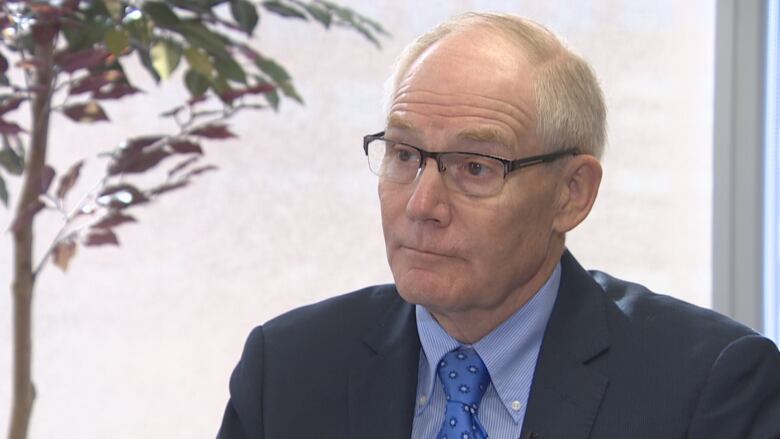New Sask. chief coroner Clive Weighill says dealing with toxicology delays a top priority
Former Saskatoon police chief also says he would like an advocate for inquest families

After more than 40 years in policing, Saskatchewan's new chief coroneris working to implement changes he recommended earlier this year.
CliveWeighillretired as Saskatoon's police chief in January 2017 after spending 11 years in the role. This past June, he authored a review of the province's coroner's office and made44 recommendations.
"I would really like people to know that the system here is not broken. Yes, there was 44 recommendations. It's a system that just needs some more capacity," Weighillsaid.
Now he is responsible for putting some of those suggestions into practice.
One the top priorities for Weighill, who took over the job on Sept. 17, is reducing the wait for toxicology results. His report recommended that toxicology analysis be completed within 90 days at least 85 per cent of the time.
"Almost everybody I talked to through the review were waiting for six, seven months for toxicology, and that slows down the police investigation. That slows down the coroner's investigation and whether or not we're going to call an inquest," Weighillsaid.
"The laboratory that we use is not a forensic toxicology laboratory and in this day and age with forensics, I think it's paramount that we get all of our samples tested in a forensic laboratory."
Another priority is increased training.
"We have about 85 community or lay coroners. They need a lot more training in their jobunderstanding identification, investigation, and the medical part they need to know."
Advocate position needed
Weighillalso wants more support for families dealing with the difficult process of going through an inquest into a loved one's death.
"We want to implement an advocate position that can deal with the families, can answer their questions, help them through the inquest, explain to them how the inquest is going work, so they don't go into the inquest with a misunderstanding of what might come out at the end, because it won't be a finding of fault."
In December, the first coroner's inquest under Weighill'sleadership will take place in theBattlefordCourt of Queen's Bench.
It will examine the circumstances and cause of Brydon Whitstone'sdeath.
The 22-year-oldwas shot following a brief police chase in North Battleford on Oct. 21, 2017.
Weighillsaid people should not expect that inquest to run any differently than recent ones, because it will take time to make legislative changes to the coroner's office.
For example, one of his suggestions would be for the inquest coroner to be able to make recommendations. Currently, only the jury at an inquest can make recommendations in Saskatchewan.
He's hopeful the province will see the changes he's suggesting as worthwhile.
"Hopefully the minister and the treasury board will see that there is value. It is an investment in Saskatchewan."












_(720p).jpg)


 OFFICIAL HD MUSIC VIDEO.jpg)
.jpg)



























































































